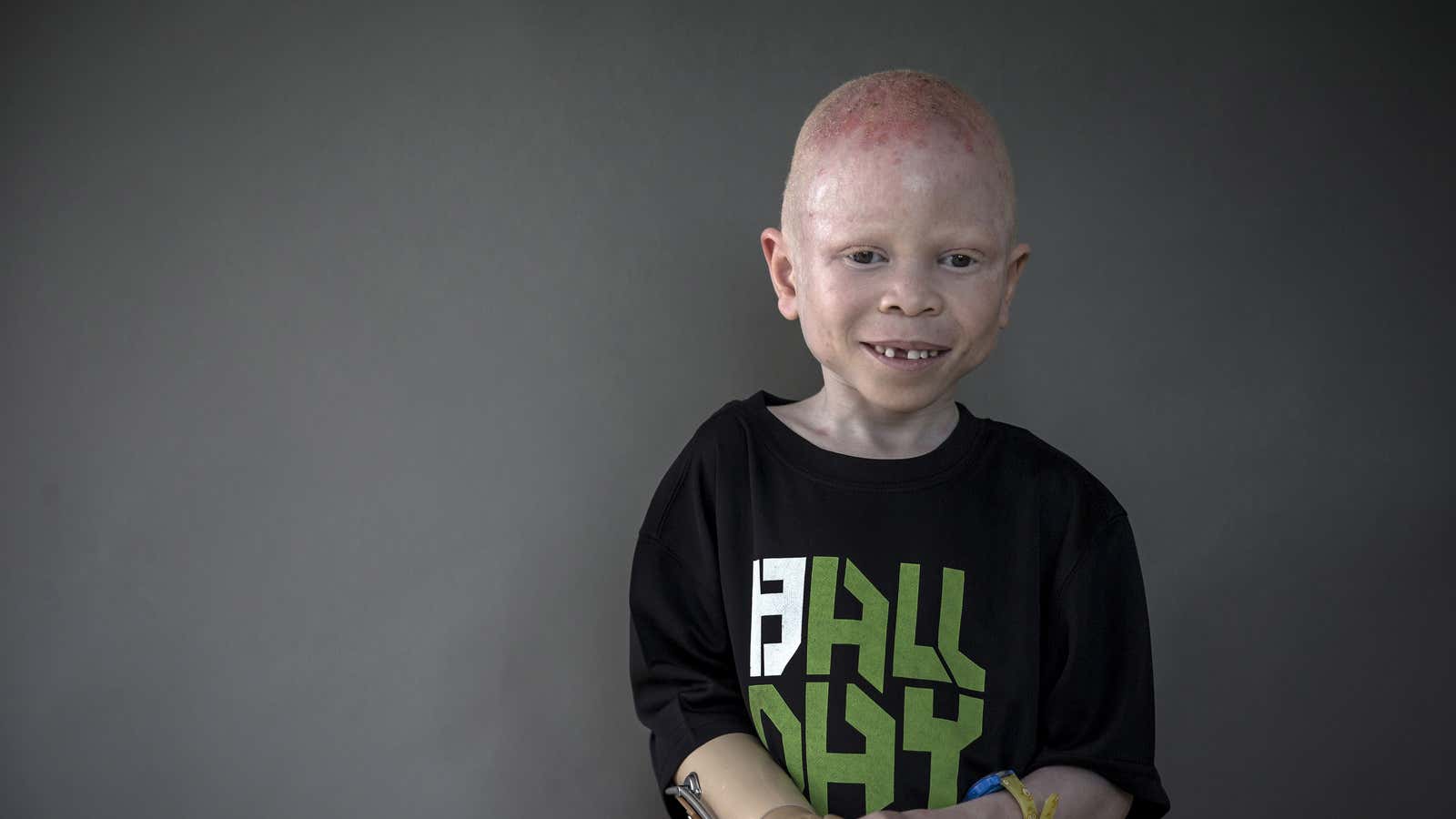Across Africa, people with albinism face numerous challenges including discrimination, abduction, trafficking, and even murder.
Owing to a lack of melanin, the genetically-inherited condition leads to people having little or no pigmentation in their eyes, hair, and skin. And given the mythology surrounding the condition, albinos are targeted for their body parts in some countries because of a false belief that they bring luck, wealth, and cure HIV. The demand is so high that in countries like Malawi, bodies are stolen from graves in order to resell them to the highest bidder.
But a new campaign hopes to reduce the stigma experienced by people with albinism. Launched by the Zimbabwean government in collaboration with mining company Zimplats, the “Beyond This Skin” campaign hopes to demystify albinism and educate people about the dangerous practices of targeting them for their skin. Launched on Oct. 11, the government hopes to encourage Zimbabweans to stop labeling persons with albinism, and to understand that character and actions matter more in life than height, skin color, or ethnic group.
The campaign revolves around a powerful commercial that showcases the daily life of two sisters, one of whom has albinism and one without. With their mother’s encouragement, the girls believe they should care for each other, help their classmates, and treat everyone the same—even if they are “mean to us.” The advert, shot in one day, conveys both the oddities facing people with albinism, and posits a feel-good belief that change of behavior can actually take place.
Simon de Swardt, who directed the commercial for the advertising agency Dicomm McCann, told Quartz that they wanted to convey the complex and difficult reality albinos face every day. “But you also want to suggest avenues for change and growth. You want to underline the potential for positive change in a community, and to show the opportunities for this to take place,” he added.
Yet despite the positive outcome in the video, the problems facing people with albinism continue to compound across Africa. Last year, even Edward Snowden, the exiled former National Security Agency contractor, chipped into the debate. Writing a letter to a Malawian albino girl, Snowden said it was “shameful” that people like her were being persecuted for being different. “Your differences are not weaknesses, they are strengths,” he wrote.
